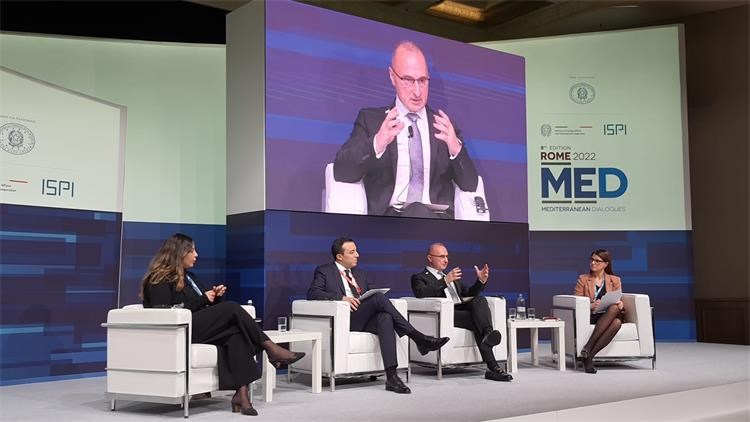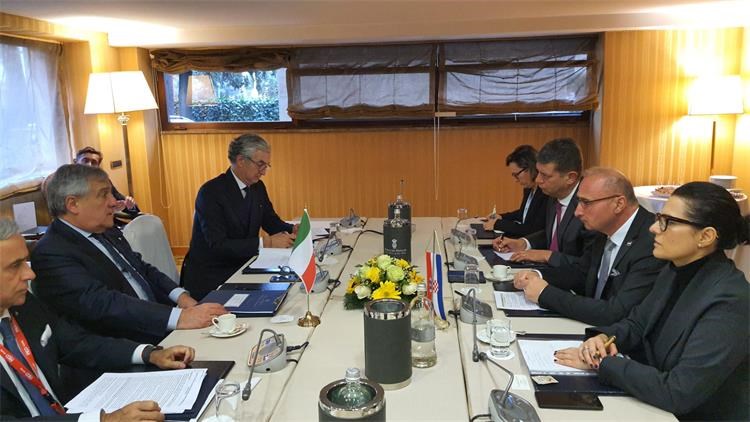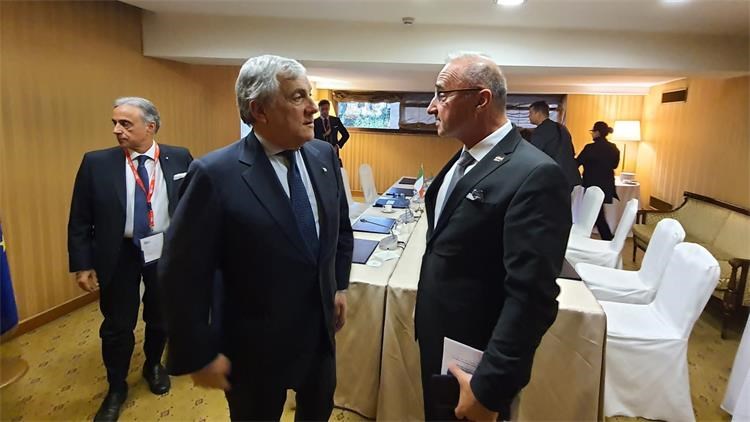- Published: 03.12.2022.
Minister Grlić Radman talks neighbourhood policy, food crisis at Rome MED
Speaking at the first panel, Grlić Radman commented on the situation in Southeast Europe in the context of the Russian aggression against Ukraine, stressing that Croatia strongly supports efforts to preserve regional stability through comprehensive economic cooperation as well as EU and NATO enlargement policy. He added that Croatia, given its geopolitical position and existing energy infrastructure, with technological advancement trends, wanted to become an energy hub for this part of Europe and beyond. In that context, the minister highlighted the North Adriatic Hydrogen Valley project, on which Croatia, Italy and Slovenia have been cooperating, emphasizing the importance of energy diversification for the general stability of the region.
“We fully support the Euro-Atlantic integration of our neighbours and are helping them by providing administrative and expert assistance based on our own experience. The countries of Southeast Europe are already surrounded by EU member states, therefore we firmly believe that EU enlargement is the only way forward in terms of long-term stability of the region,” Grlić Radman said.
Speaking at the panel on the global food crisis, the minister underlined the importance of the role of the Food and Agriculture Organisation and the UN in response to that crisis. “We strongly support the UN’s role and leadership in responding to this issue, in cooperation with partners and international organizations,” he said. Grlić Radman also stressed that the current degree of food insecurity was a direct consequence of the impact of the coronavirus pandemic on the global economy, supply chain disruptions, extreme weather conditions and armed conflicts, notably the Russian invasion of Ukraine.
“Even before the Russian invasion, the Global Report on Food Crises estimated that around 200 million people in more than 45 countries were faced with a high degree of food insecurity and required urgent help. The Russian attack on Ukraine has made the situation across the globe dramatically worse by increasing hunger, poverty and instability with global repercussions, including here in the Mediterranean,” he said, calling for adapting global food and energy systems so they could no longer be used as a weapon or for blackmail.
On the margins of the Rome conference, Grlić Radman met with his Italian counterpart Antonio Tajani for talks on bilateral relations, the situation in the Western Balkans, cooperation on migration, and the meeting of the Coordination Committee of Ministers. Grlić Radman also held talks with his Lebanese counterparts Abdallah Bou Habib, discussing the security situation that is important for not only the stability of Lebanon, but also the region as a whole. He announced a project that Croatia is launching in cooperation with UNICEF to build several playgrounds for children with developmental disabilities in Lebanon.





